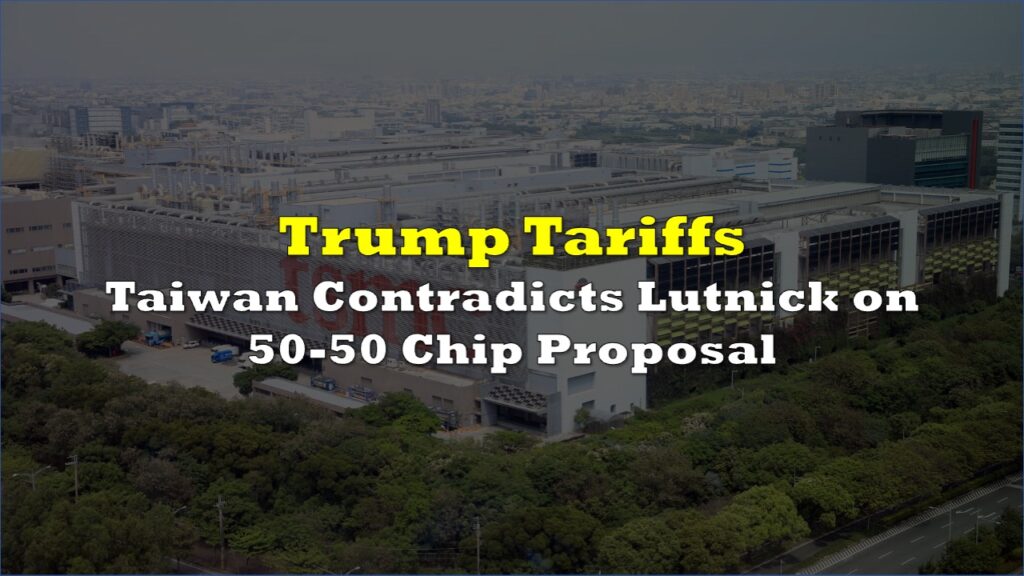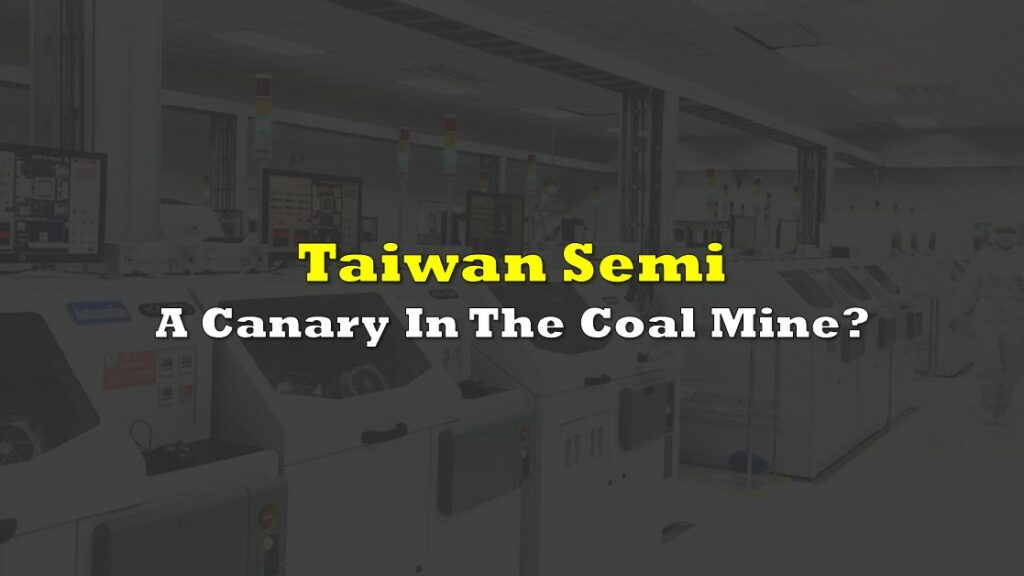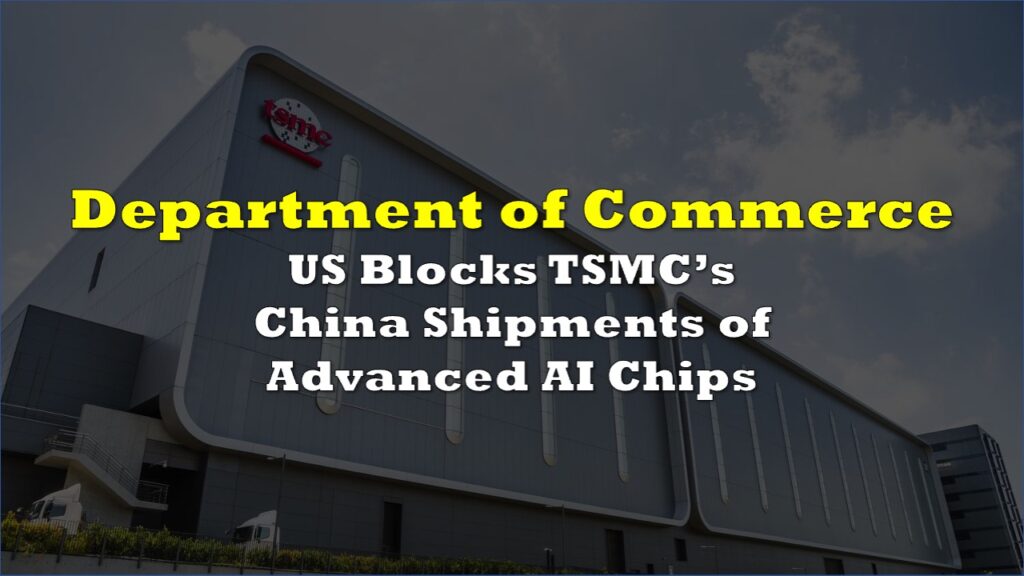Taiwan Semiconductor Manufacturing Company (NYSE: TSM), the world’s largest contract chipmaker, reported a remarkable 54% increase in net profit for the third quarter of 2024, driven by soaring demand for artificial intelligence (AI) chips. The company’s profits surged to NT$325.26 billion ($10.1 billion), exceeding analysts’ estimates, and revenue also saw a significant jump, up 36% year-on-year to $23.5 billion.
The results highlight the pivotal role TSMC plays in the global tech ecosystem as the supplier of cutting-edge chips that power everything from smartphones to AI data centers.
This performance comes despite headwinds facing the broader semiconductor industry, including geopolitical tensions, fluctuating demand across various sectors, and shifts in the global supply chain. TSMC’s ability to thrive during these times is largely attributed to its dominant position in manufacturing AI chips, notably for key clients such as Nvidia Corp. and Apple Inc.
The third-quarter earnings reflect the growing influence of AI technology, which is reshaping industries and driving unprecedented demand for advanced semiconductors. TSMC’s Chairman, CC Wei, emphasized the critical role AI plays in the company’s financial success.
“Our business in the third quarter was supported by strong smartphone and AI-related demand for our industry-leading three-nanometer and five-nanometer technologies,” Wei stated during a post-earnings briefing. “The demand [for AI] is real, and I believe it’s just the beginning of this demand. It will continue for many years.”
TSMC’s leading-edge AI chips are indispensable for companies like Nvidia, whose GPUs are central to AI applications, including large language models and image recognition technologies. The shift toward AI-driven computing has also bolstered demand for TSMC’s chips in sectors such as cloud computing and autonomous vehicles.
This boom comes as the company rolls out its advanced three-nanometer technology, considered the most advanced in the industry. These chips are critical for AI and other high-performance computing tasks, enabling faster processing speeds and greater energy efficiency.

Global Expansion
In addition to its strong earnings, TSMC is pursuing an aggressive international expansion strategy. The company is building new fabrication plants across key regions, including the U.S., Europe, and Japan, to mitigate risks from geopolitical uncertainties and to meet the growing global demand for AI chips.
TSMC has already begun construction on its first plant in Arizona, with volume production expected to begin in 2025. The company has also started developing a second facility in Japan, which is expected to break ground by the end of 2025. These new fabs aim to replicate the high manufacturing standards set by TSMC’s facilities in Taiwan.
“We are confident that our overseas fabs will deliver the same level of manufacturing quality… as from our fabs in Taiwan,” said Wei.
In Europe, TSMC has started work on its first factory in Dresden, Germany, with a strong focus on producing AI chips to meet the demand from European tech firms. The company is reportedly planning more factories in Europe as part of its global expansion strategy, highlighting the critical importance of AI-related technologies.
While TSMC’s financial performance has been stellar, the company continues to navigate the complicated geopolitical landscape, particularly with the ongoing tensions between the U.S. and China. TSMC’s dominance in the semiconductor industry has made it a central player in the global tech supply chain, which is currently caught in the crossfire of trade disputes and technology restrictions.
The U.S. government, concerned about potential military applications of advanced chips, has imposed restrictions on the export of high-tech semiconductors to China. This has had significant implications for companies like TSMC, whose cutting-edge technology is crucial for both commercial and defense applications. The Biden administration is reportedly considering further caps on exports of advanced AI chips to specific countries, which could impact TSMC’s long-term strategies.
In response to these challenges, TSMC has been urged by the U.S. and European governments to diversify its production away from Taiwan, where the bulk of its manufacturing is currently concentrated. Taiwan, a self-governing island claimed by China, has been the center of escalating military and diplomatic tensions. Earlier this week, China conducted large-scale military drills around Taiwan, further raising concerns about the stability of the region’s semiconductor industry.
Given these concerns, TSMC’s decision to expand its production capacity outside of Taiwan is seen as a move to reduce potential risks and secure the global supply of semiconductors. The company’s factories in Arizona, Japan, and Germany are expected to bolster its position as a critical supplier in the global market, irrespective of future geopolitical challenges.
Despite the robust demand for AI chips, the semiconductor industry faces several challenges. Dutch chipmaking equipment manufacturer ASML Holding NV, a key supplier to TSMC, recently reported a steep decline in sales bookings and cut its 2025 guidance due to slower-than-expected recovery in the automotive, mobile, and PC markets. This has raised concerns among some investors about the sustainability of AI-driven growth in the semiconductor sector.
Furthermore, there are doubts about whether tech giants such as Meta Platforms Inc. and Alphabet Inc. will continue their heavy investments in AI infrastructure without the emergence of a “killer app” that drives mass adoption of AI technologies.
However, for now, TSMC remains bullish on its prospects, particularly in the AI sector. The company raised its full-year revenue growth forecast to nearly 30%, reaffirming its confidence in the long-term potential of AI.
“Moving into the fourth quarter, we expect our business to continue to be supported by strong demand for our leading-edge process technologies,” Wei said. “The AI revolution is just beginning, and TSMC is ready to lead the charge.”
Information for this story was found via Bloomberg, AP News, and the sources and companies mentioned. The author has no securities or affiliations related to the organizations discussed. Not a recommendation to buy or sell. Always do additional research and consult a professional before purchasing a security. The author holds no licenses.









